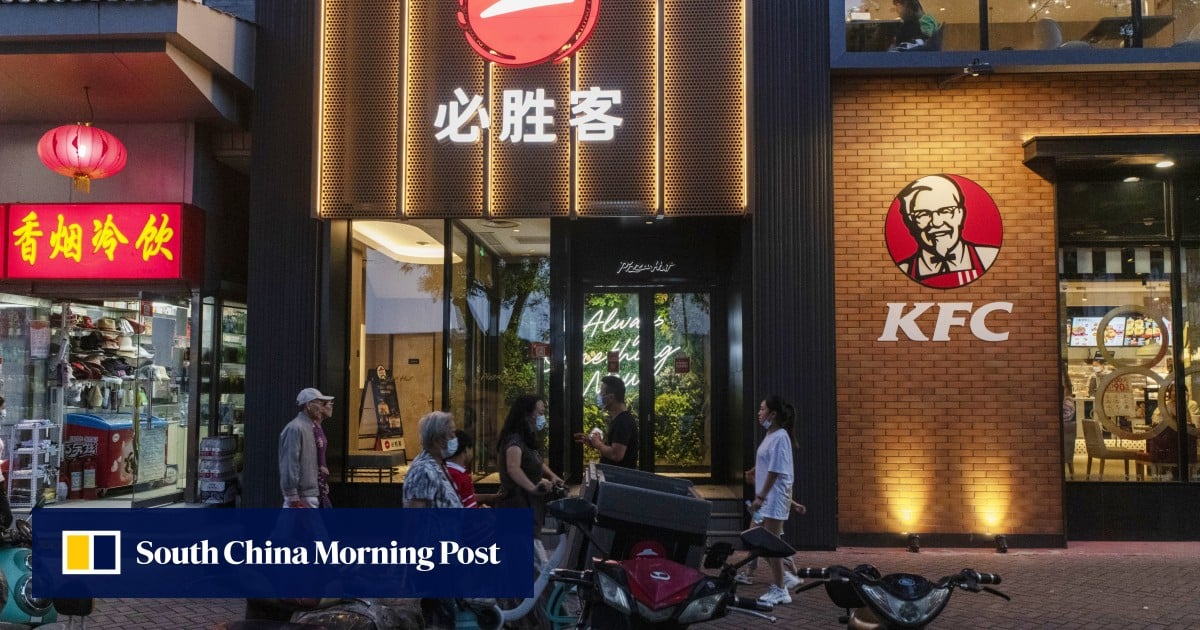The fast-food behemoth said 30 per cent of its 1,500 to 1,700 new outlets to be established this year would be located in lower-tier cities or strategic places such as transport hubs or tourist destinations.
“Looking toward the future, we are absolutely confident in seizing China’s vast opportunities. We are expanding … through a multifaceted approach with flexible store formats, strategic franchising and a range of exciting products across price points.”
Yum China reported a net profit of US$287 million for the three months ending March, down 0.7 per cent from the same period a year ago. Revenue edged up 1 per cent on the year to US$2.96 billion. Its same-store sales, however, slipped 3 per cent from the year-ago period.
An overall weak consumer market in China as people worry about their wage growth and job prospects has prompted restaurant chain operators to launch more value-for-money menus to lure budget-conscious customers.
The strategy seems to be working. The company said Pizza Hut’s sales of pizza priced under 50 yuan (US$6.90) saw double-digit annual growth during the first quarter.
From January to March, Yum China opened 378 new stores, bringing the total number to 15,022.
Wat said the company is confident of sustaining strong growth and creating long-term value for the shareholders, buoyed by its expansion plans.
Yum China said KFC had introduced a “small-town mini model” for franchise stores, which requires capital expenditure of 500,000 yuan, less than half the 1.2 million yuan required to set up a standard outlet.
How a Taiwanese businessman introduced KFC to China
How a Taiwanese businessman introduced KFC to China
More than 100 outlets under the so-called side-by-side KCoffee model have been opened in about 80 cities.
Yum China was the trailblazer among Western fast-food giants to tap the Chinese market, but now competes against a packed field of local and international rivals.
KFC’s chicken burgers were viewed as luxury cuisine by Chinese consumers when the brand landed on the mainland in 1987. A KFC meal then could cost a third of a wage-earner’s monthly income. Now, KFC recognises that its competition is every restaurant that offers meals priced at about 30 yuan.
Yum China, whose other brands include Little Sheep, Taco Bell and Lavazza, aims to run a total 20,000 stores by 2026. At the end of March, its loyalty membership programme had drawn 485 million consumers across the mainland.
